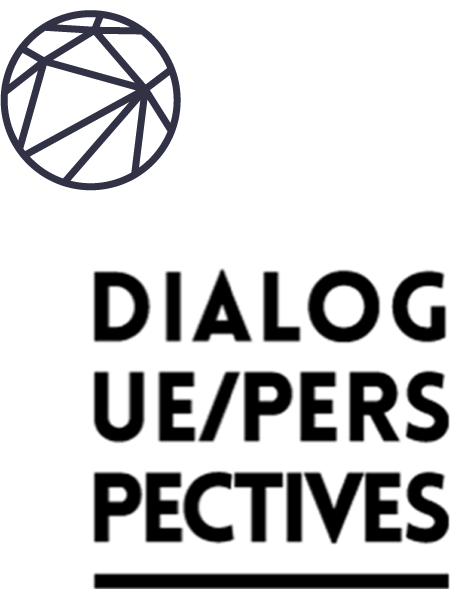Retrospective: Spring Seminar 2020
March 25th–29th 2020

This year’s DialoguePerspectives spring seminar has taken place – in the middle of the Covid-19 pandemic and under completely different conditions than planned. We were, with a flexible team, the seminar leaders, religious advisors, and the engagement of our former participants, able to radically restructure our work in the shortest possible time and develop an online platform as well as additional methods and formats to transfer the seminar to the digital realm. The value of our program shows itself in the midst of this dramatic crisis: DialoguePerspectives is, as a European, globally-acting network, the tool for meeting the novel challenges posed by the Corona crisis – across the boundaries of nation, religion, and worldview.
The weeks prior to the start of the spring seminar were a challenge for us all, including DialoguePerspectives, a rollercoaster ride of hopes and fears. The news situation in Germany, Europe, and around the world was changing every hour and a week before the start of the program, our worst fears were confirmed: all events of the intellectual support programs of the German scholarship funds through April were cancelled; our partners in Luxembourg simultaneously announced a similar regulation.
One of the foundation conceptual assumptions of our program is: Relationships are the focus of the program: interpersonal, interreligious-worldview, intercultural, academically interdisciplinary. The program lives from intensive exchange amongst participants, from constructive confrontations, from jointly experienced religious practice, from collaboration. This is the reason it seemed to us that there was no other option but to cancel the seminar and make it up at a later time.
At the same time, the short description of our program also states: DialoguePerspectives was brought into being to develop, test, and implement new forms of worldview and interreligious dialogue. When, if not now, should this sentence become a plan for action?
In the course of multiple Zoom meetings in the days before the start of the seminar, the team, the working group leaders, and the religious advisors jointly worked out the seminar units that were suitable to be adapted to a digital format. Each unit was prepared anew. As an accompaniment to the seminar, we used the tailor-made intranet of the DialoguePerspectives website, which was expanded by a diversity of additional functions.
In total, 15 events taking place during the seminar period (Wednesday through Sunday) were transferred to the digital sphere with the technical help and substantive accompaniment of the team.
The seminar days
At the launch meeting (Wednesday, 26th March), the instructors explained the seminar program, which was followed by a moderated introduction round for all participants.
The topics of the seminar were:
- The relationship between state and religion in Luxembourg and socio-political implications
- Global alliances, global solidarity
- Reflections of Identity, Power and Privilege
- Morning inputs
- Learning from the Scriptures
- Candle-lightning for Shabbat
- #socialsaturday
- Ecumenical prayer
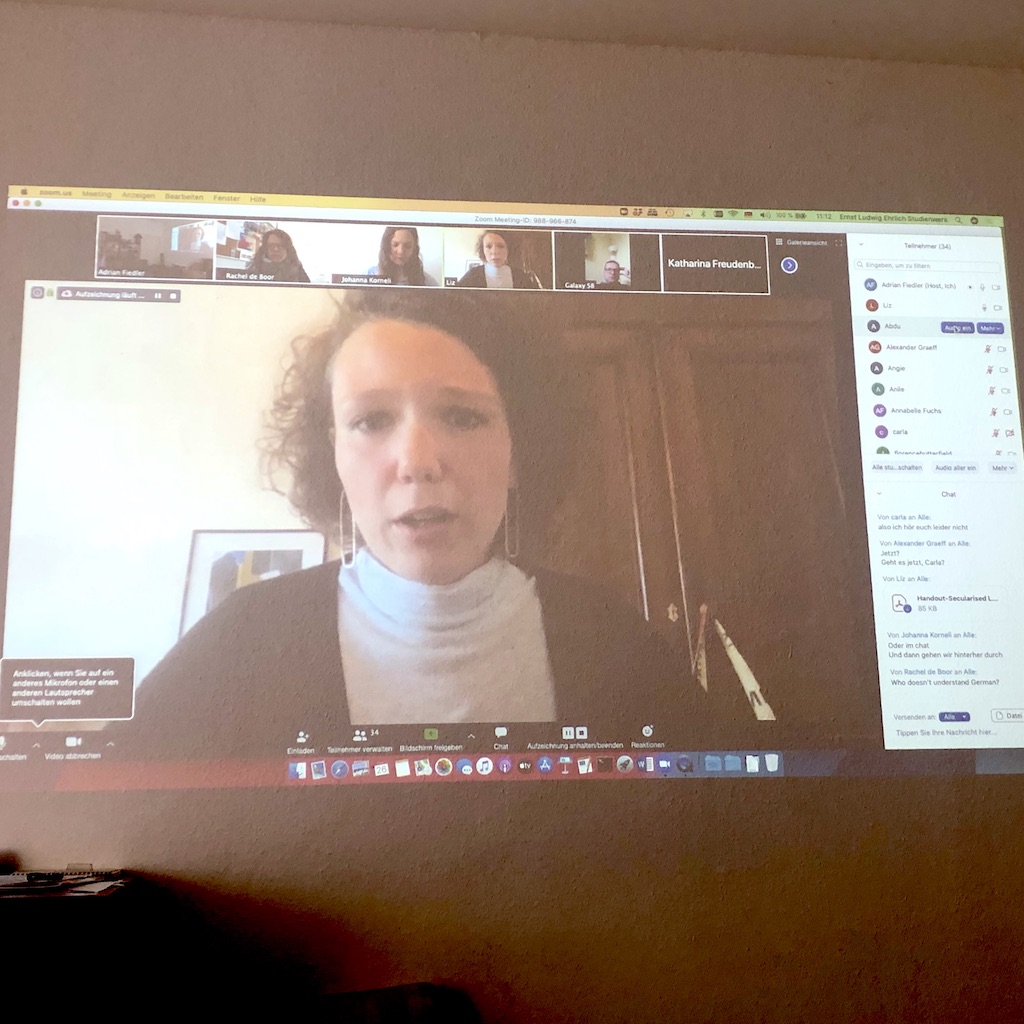
On Thursday (27th March), two topical units and a reflection unit were offered. Liz Lambert, a research associate at the Luxembourg School of Religion & Society (LSRS), presented on the topic of “Secularized Luxemburg?” and provided input on “Alliances and global solidarity with a focus on Jewish-Muslim relations”. Rachel de Boor and Prof. Dr. Frederek Musall led the subsequent discussion on the meaning of and opportunities offered by European and global alliances.
This was followed by a reflection unit, guided by working group leader Kristina Schneider, during which participants discussed the personal and societal challenges of the Corona crisis and privileges and power structures in our societies. The guiding questions of this unit were: How are different groups differently impacted and impaired by the current situation and what does social distancing mean in diverse circumstances? How can I use my own privileges to help others? In what ways do I need help, and how can I access this help? Which role does the European or global level play for me and my network?
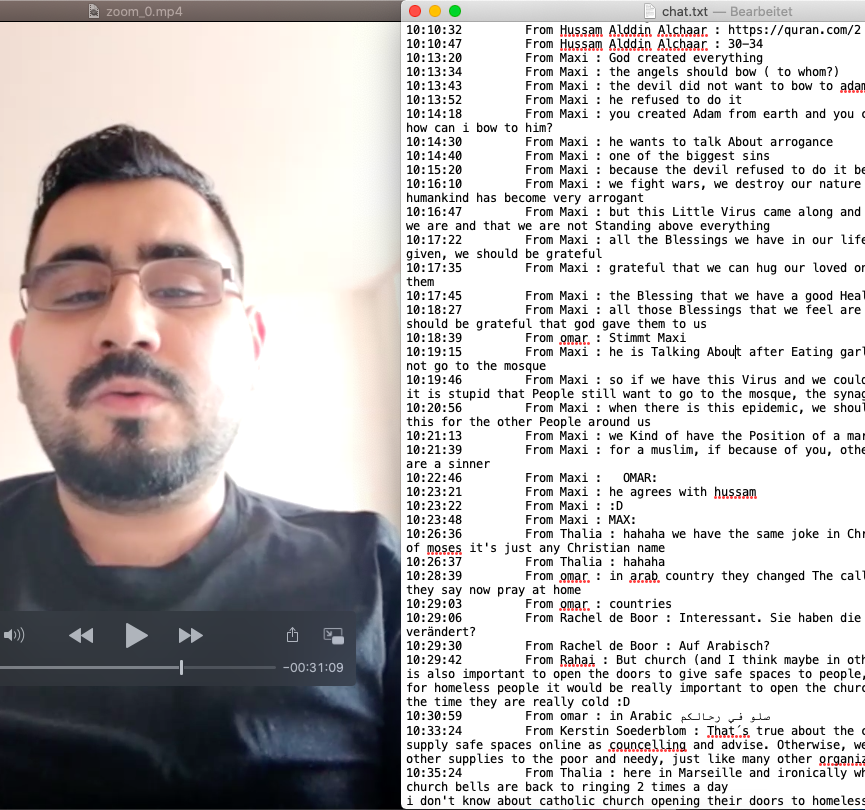
Friday (28th March) began with two morning inputs by participants: a recitation from the Koran with input on Islamic prayer practices in times of crisis and epidemic, and a thought experiment on the concepts of nation states, national, cultural, and religious identity and the ambivalence and challenges of European, international, and supranational networks.
The religious advisors provided input on and correlations between figures from the religious texts of Judaism, Christianity, and Islam under the title “Learning from the scriptures with our spiritual leaders”. The following discussion gave special consideration to non-religious viewpoints, with a debate on queer and intersectional interpretations.
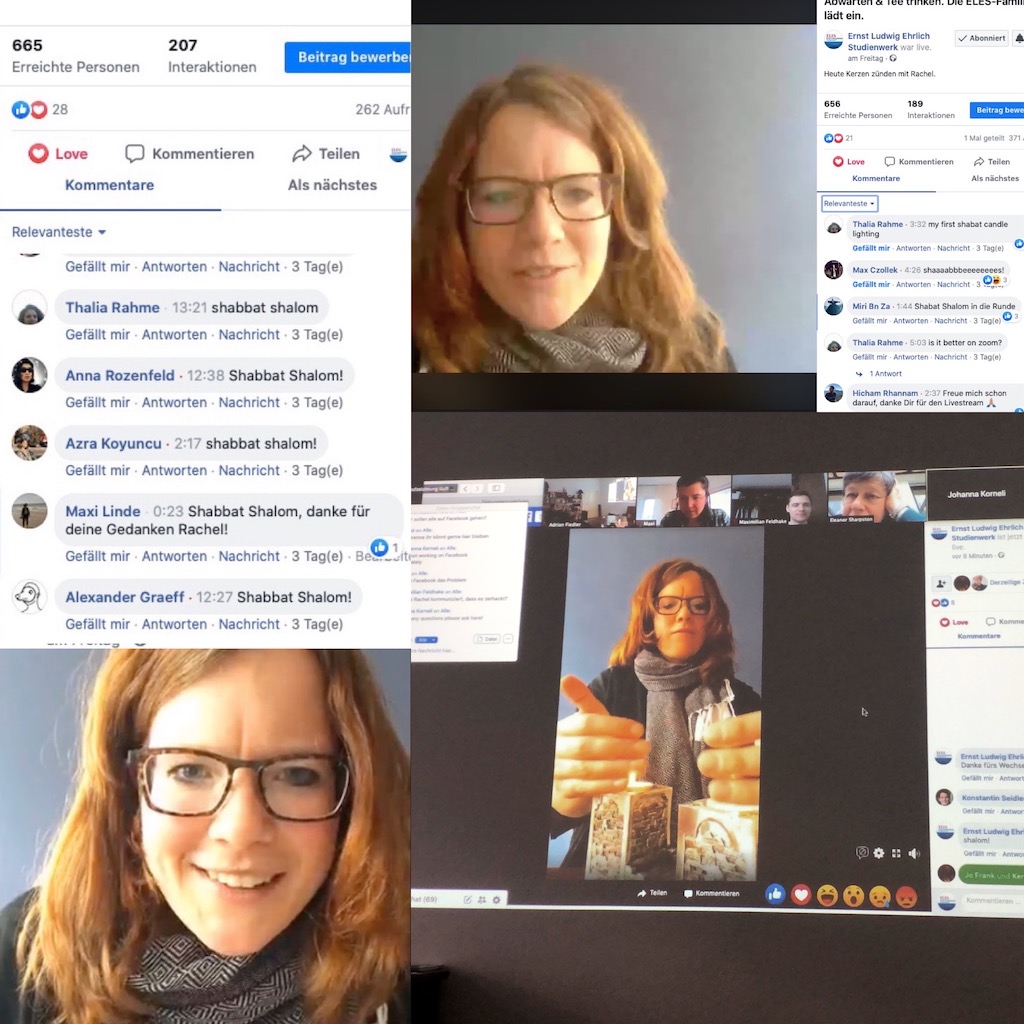
To end the day, DialoguePerspectives team member Rachel de Boor lit the candles to welcome the start of Shabbat. The candle-lighting was streamed via Facebook Live as part of the series “Keep Calm and Drink Tea. An invite from the ELES family”. It was possible for viewers to pose questions during the stream. The live stream was simultaneously shared in a Zoom meeting to give the participants the chance to ask their questions about Shabbat practices in a protected space.
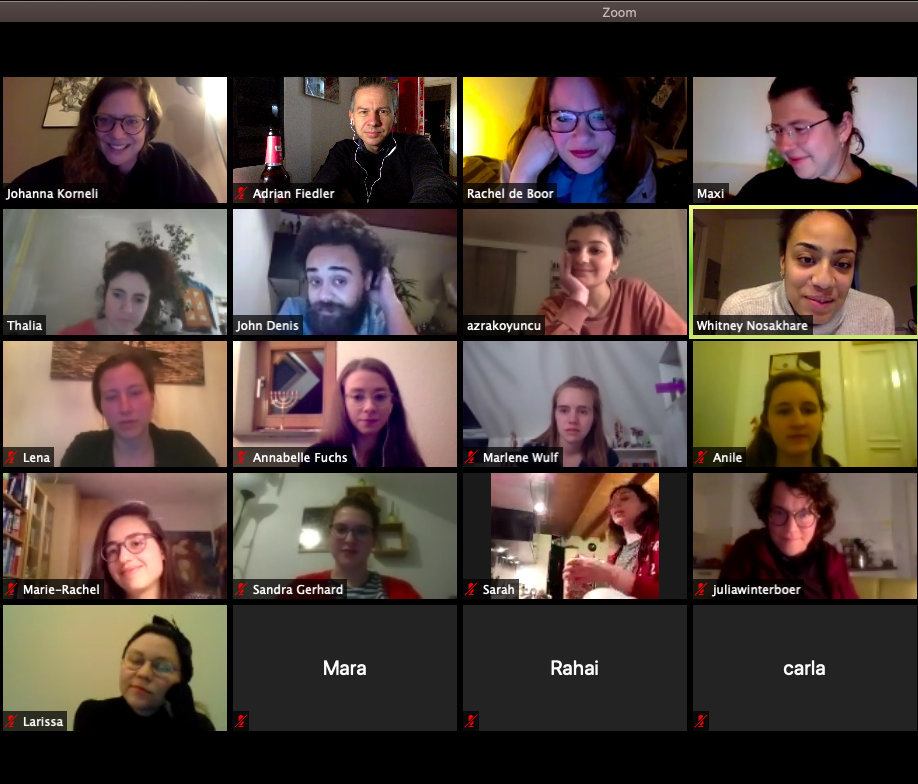
After Saturday (29th March) was mostly spent in Shabbat mode – with no digital formats, though with time for reading and reflection on the previous seminar days – after which, the participants met for #socialsaturday. The evening was full of intensive discussions, which are naturally also possible to conduct online. The response from former participants to the last-minute invitation to this program point was overwhelming. Many former participants, including a large number from the first year (2015/16) used the occasion to come together and share in a conversation with the current participants. This is yet another impressive showing of the deep ties our former participants feel to our program. They discussed the impact of DialoguePerspectives on their personal development and provided insights into their respective fields of work and professional and academic networks.
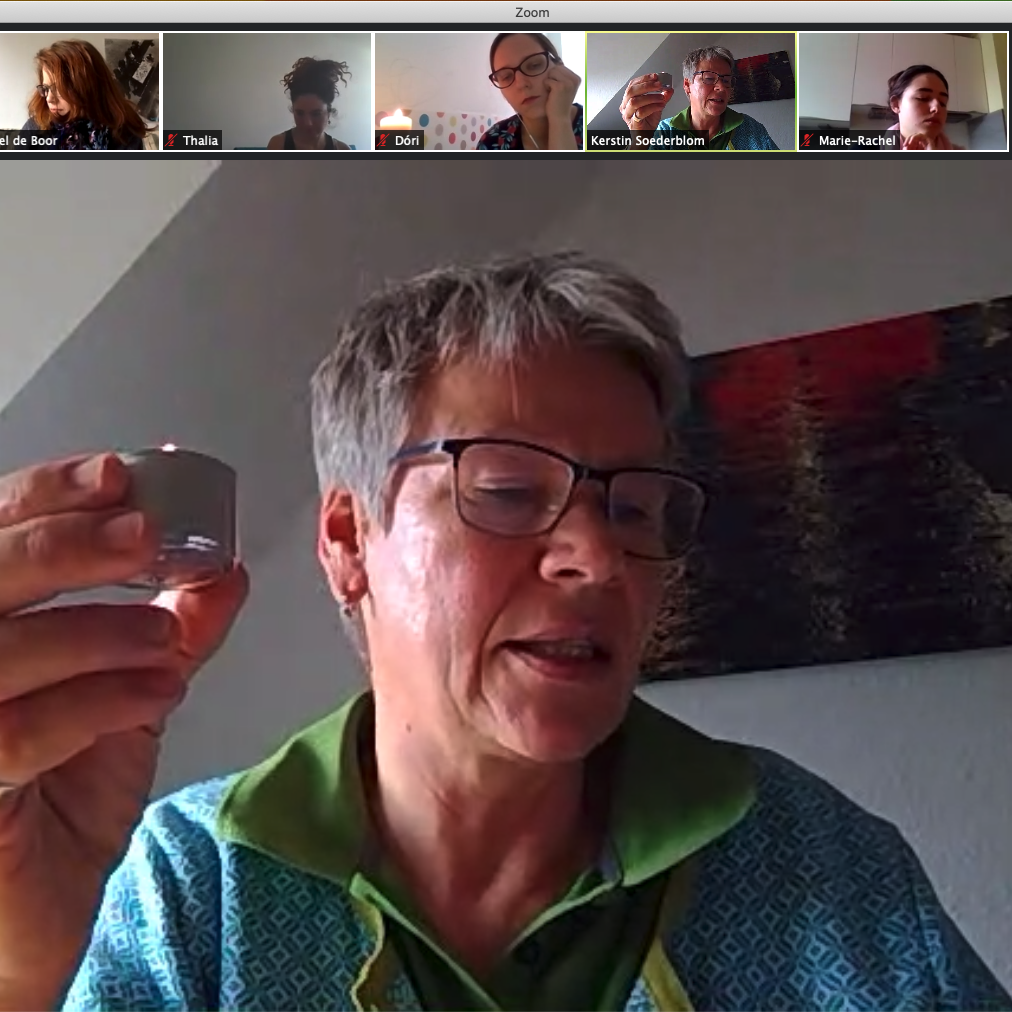
On Sunday (30th March), there was an ecumenical prayer service led by the religious advisors, a Maronite Christian participant from France, and a Protestant participant from Hungary, who made use of the opportunities provided by the digital realm in an impressive way.
In the concluding meeting, the participants provided feedback directly and via the chat function and arranged to continue their work after the seminar
